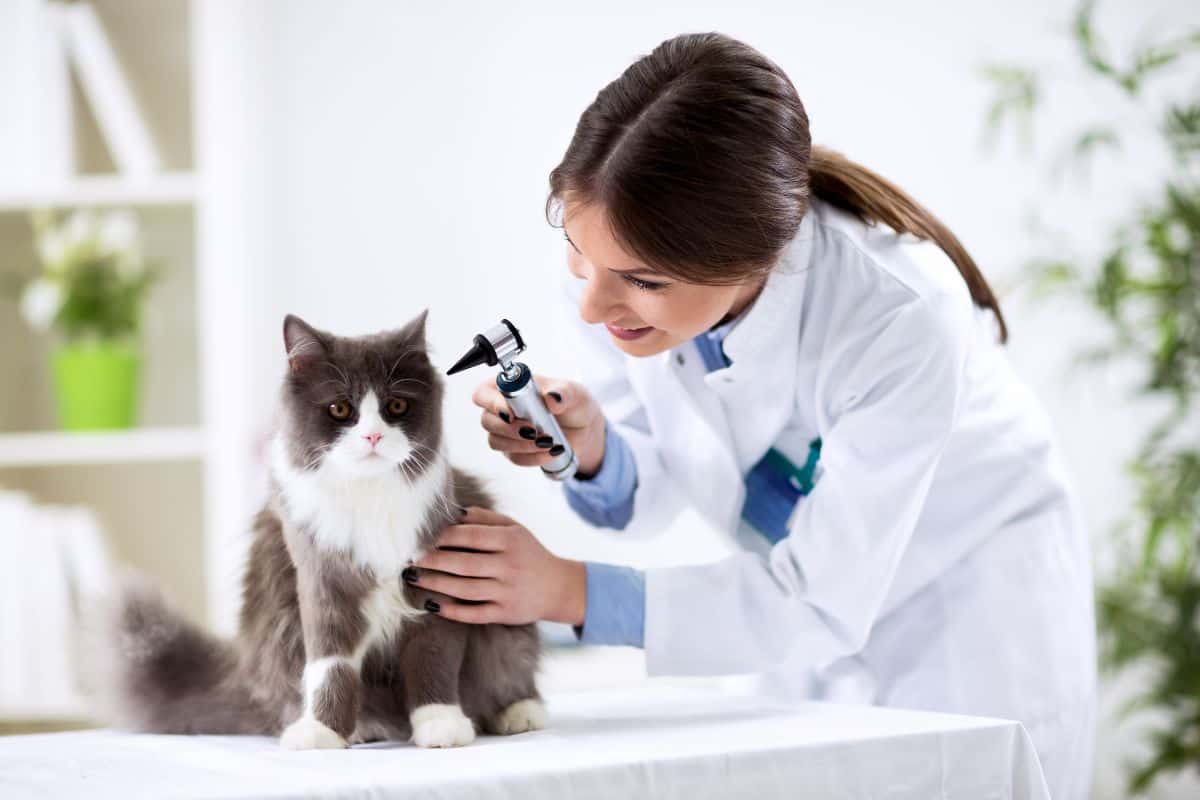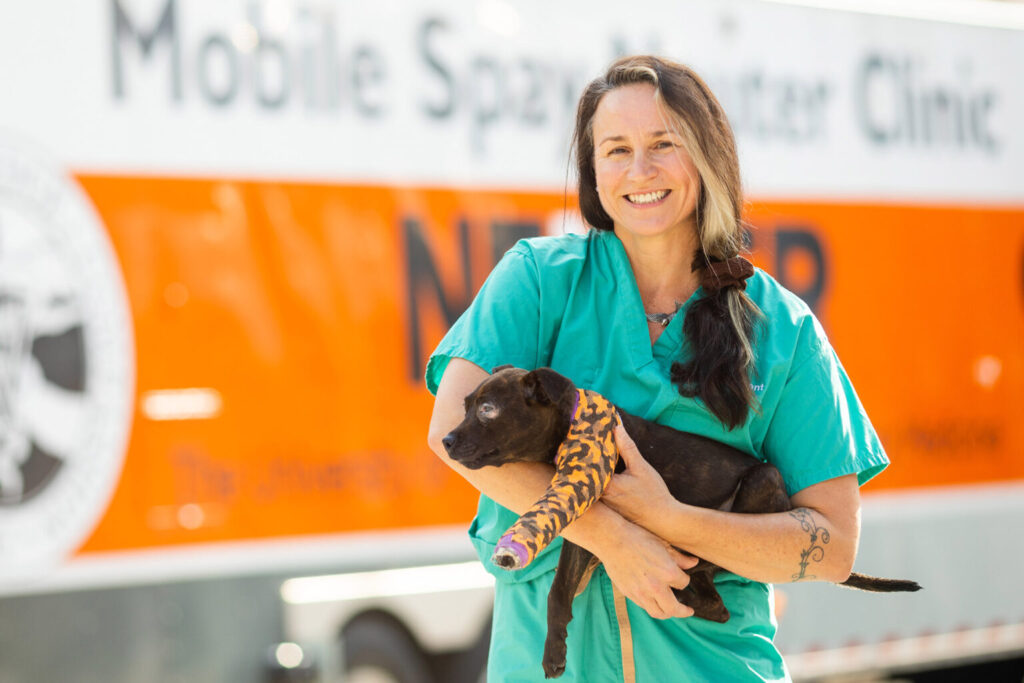Key questions your Board Certified Veterinary Oncologist at the first appointment
Wiki Article
The Value of Very Early Detection: Insights From a Vet Oncologist
Early detection of cancer cells in pets is a crucial subject for family pet owners and veterinary experts alike. Vet oncologists stress the significance of recognizing subtle signs that might show significant health and wellness issues. Usual signs often go undetected till they escalate. Comprehending these very early indication and advancements in diagnostic methods can make a significant distinction. What actions can family pet owners require to improve their pets' opportunities of early diagnosis and much better therapy end results?Understanding Cancer Cells in Pets: Typical Kinds and Signs
While lots of animal proprietors may not recognize it, cancer cells is a substantial wellness issue impacting pets, similar to it performs in humans. Common sorts of cancer cells in family pets consist of lymphoma, mast cell growths, osteosarcoma, and mammary growths. These hatreds can manifest in numerous methods, depending upon their location and kind. Signs and symptoms often consist of inexplicable weight loss, consistent throwing up, adjustments in cravings, or unusual swellings and bumps. Pet dogs might likewise display sleepiness, trouble breathing, or unwillingness to workout, which can suggest underlying wellness issues. Early signs can be subtle, making it important for animal owners to be watchful of their pets' habits and physical condition. Understanding these typical kinds and connected symptoms can encourage owners to look for veterinary treatment immediately, possibly resulting in earlier medical diagnosis and therapy options. Recognizing the indications of cancer in pet dogs is an essential action towards improving their wellness and quality of life.The Function of Veterinary Oncologists in Very Early Detection
Veterinary oncologists play a vital duty in the very early detection of cancer cells in animals, as their specialized training outfits them with the skills necessary to determine subtle signs that may be neglected by basic specialists. They utilize a combination of medical competence and advanced analysis devices to evaluate clients thoroughly - Veterinary Cancer Specialist. By identifying early symptoms and risk variables, oncologists can guide pet owners toward prompt interventions, raising the opportunities of successful treatmentIn addition, vet oncologists commonly team up with family doctors to create screening methods customized to details types or age groups, improving the effectiveness of early discovery initiatives. They educate pet owners on the importance of routine check-ups and recognition of adjustments in behavior or physical problem. With these aggressive steps, vet oncologists substantially add to enhancing outcomes for pet dogs detected with cancer, stressing the crucial nature of their role in veterinary health care.
Developments in Diagnostic Techniques for Animal Cancer Cells
Innovations in diagnostic methods have actually noticeably enhanced the capacity to identify cancer in pet dogs at earlier stages. Strategies such as sophisticated imaging, consisting of MRI and CT scans, provide thorough inner sights, permitting veterinarians to determine tumors that might not be palpable. In addition, the growth of minimally intrusive treatments, such as fine needle aspirates and biopsies, enables precise sampling of tissues for histopathological assessment with reduced stress and anxiety for the pet.Arising molecular diagnostics, consisting of hereditary testing and biomarker identification, are transforming the landscape a knockout post of vet oncology. These methods can determine certain cancer kinds and forecast responses to treatment, promoting individualized this page treatment plans. Advancements in laboratory methods, such as liquid biopsies, are beginning to use non-invasive choices for keeping track of tumor development and therapy effectiveness. Collectively, these advancements represent a substantial leap onward in vet medication, stressing the vital role of early detection in improving results for animals detected with cancer.
How Family Pet Owners Can Recognize Indication
Just how can animal proprietors become cautious in acknowledging possible warning indicators of cancer? Understanding of physical and behavior modifications in pets is vital. Common signs consist of uncommon sleepiness, anorexia nervosa, or abrupt weight changes. Animal owners ought to also take notice of relentless vomiting or diarrhea, which might signal underlying issues.Modifications in the skin, such as swellings, bumps, or sores that do not recover, necessitate immediate veterinary interest. In addition, proprietors need to note modifications in alcohol consumption behaviors, increased urination, or difficulty in breathing. Unexplained hopping or pain might additionally be signs of more major problems.
Routine vet exams can help determine these indication early. By maintaining a close observation of their family pets' health and behavior, owners can play an essential function in early detection, potentially bring about far better end results need to cancer cells be diagnosed. Acknowledging these indicators might substantially impact a family pet's lifestyle.
The Influence of Very Early Discovery on Treatment Results
Early detection of cancer in pets plays an important role in determining therapy results, as it commonly enables for a larger variety of therapeutic alternatives. When cancer cells is identified in its beginning, vets can execute less intrusive therapies, enhancing the likelihood of effective treatment. Early-stage cancers may additionally respond better to chemotherapy or radiation, resulting in improved survival prices and general lifestyle for the pet dog.Furthermore, timely medical diagnosis promotes a much more tailored treatment strategy, aligning with the details requirements of the animal. This can include tailored medicine regimens or medical interventions that are less hostile. Alternatively, late-stage detection often causes minimal alternatives, much more hostile treatments, and poorer diagnoses. The importance of early detection can not be overemphasized; it basically modifies the trajectory of therapy, making it important for pet proprietors to stay cautious for any indications of disease in their beloved buddies.
Frequently Asked Questions

How Can Diet Regimen Influence Cancer Cells Danger in Pet Dogs?
Diet plan considerably influences cancer cells threat in pet dogs, as certain nutrients and food types can either promote or hinder lump development. A well balanced, nutrient-rich diet plan may help page in reducing the possibility of creating cancer cells in pets.
Are Certain Types A Lot More Prone to Cancer?
Certain pet dog types, such as Golden Retrievers and Fighters, show higher cancer cells sensitivity due to genetic predispositions. Some feline types likewise show raised cancer cells dangers, highlighting the relevance of breed-specific health and wellness awareness amongst family pet proprietors.
What Are the Expenses Related To Very Early Cancer Cells Detection?
The expenses connected with early cancer cells discovery can vary significantly, encompassing diagnostic tests, consultations, and possible treatments - Veterinary Oncology Services. Purchasing these services often results in much better health and wellness outcomes, inevitably saving money on extra comprehensive future clinical expensesCan Injections Protect Against Cancer in Pet Dogs?


Vaccinations might decrease the danger of particular cancers in pet dogs, specifically those linked to viral infections. Nonetheless, their performance varies, and pet proprietors must seek advice from vets for tailored advice relating to vaccination and cancer avoidance techniques.
Exactly How Commonly Should Pet Dogs Be Evaluated for Cancer?
Family pets need to normally be evaluated for cancer each year, particularly as they age or if they exhibit danger aspects. Normal veterinary examinations can aid identify prospective issues early, enhancing treatment outcomes and overall health and wellness administration.Early discovery of cancer in animals is an essential topic for family pet proprietors and vet experts alike. Early indications can be subtle, making it vital for animal owners to be watchful of their animals' behaviors and physical condition. Veterinary oncologists play a necessary role in the very early discovery of cancer in animals, as their specialized training furnishes them with the abilities essential to recognize refined indicators that may be ignored by general professionals. By preserving a close monitoring of their pets' health and actions, owners can play a crucial role in very early detection, potentially leading to better results need to cancer cells be detected. Early discovery of cancer cells in pet dogs plays a vital role in identifying treatment end results, as it usually allows for a broader range of restorative options.
Report this wiki page